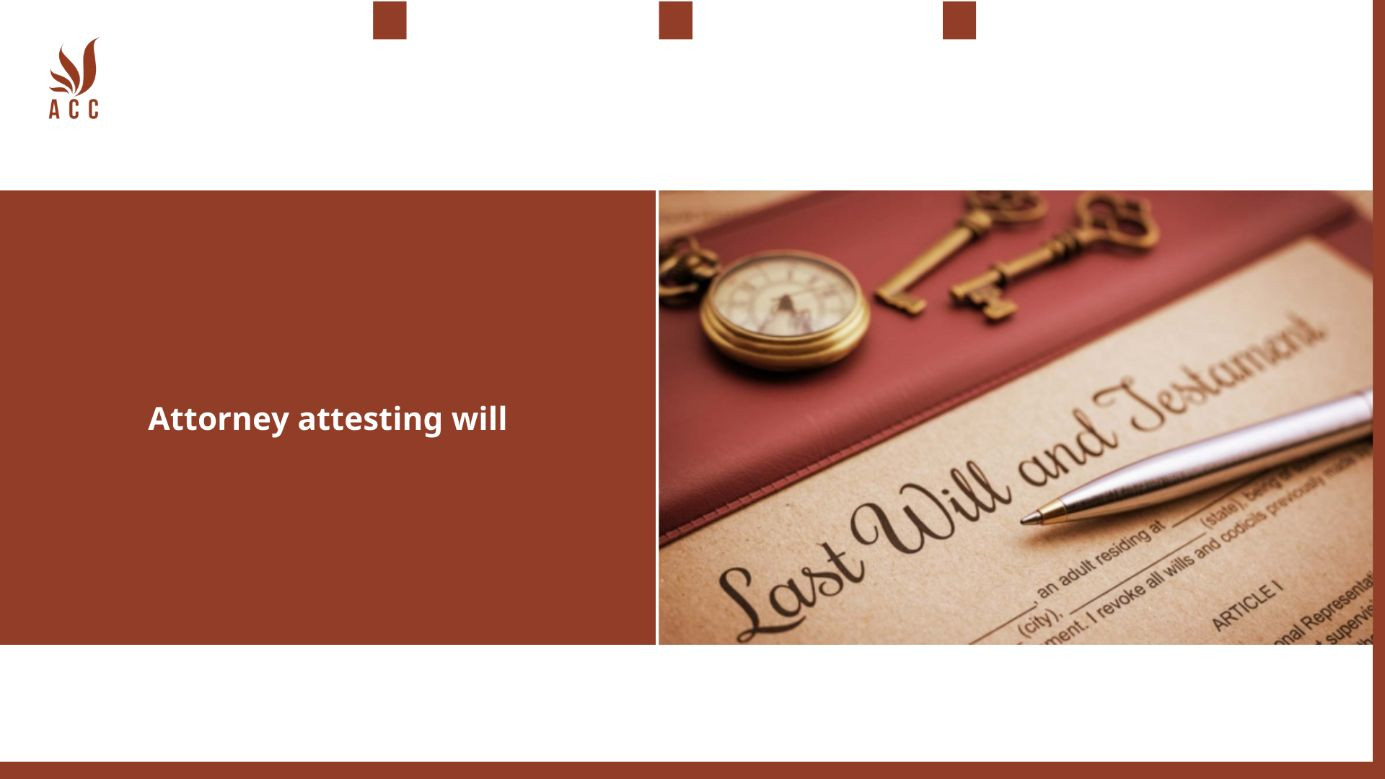An attorney can play various roles in the process of creating and attesting a will:
1. Legal Advice:
Attorneys can provide legal advice to individuals who wish to create a will. They can explain the legal requirements, help you understand the implications of different decisions, and provide guidance on how to structure your will to best meet your goals and protect your assets.

2. Will Drafting:
Attorneys can draft a will on behalf of their clients. They have experience in using precise and legally sound language to ensure that your wishes are clearly and accurately documented in the will.
3. Notarization and Attestation:
Attorneys, who are also notaries public, can notarize and attest to the validity of your will. This involves witnessing your signature on the document, verifying your identity, and attaching a notarial certificate to the will, which includes the notary's seal and signature.
4. Executor Designation:
You can designate an attorney to serve as the executor or personal representative of your estate in your will. The executor is responsible for carrying out the terms of the will, including asset distribution, payment of debts, and estate administration.
5. Trusts and Complex Provisions:
If you have complex estate planning needs, such as the creation of trusts or special provisions for beneficiaries, an attorney can ensure that these elements are properly structured and executed in accordance with the law.
6. Witnesses:
Attorneys can also serve as witnesses to the signing of your will, if required by local laws. They can ensure that the signing process adheres to all legal formalities.
7. Legal Guidance for Executors:
In cases where the attorney is named as the executor, they can provide legal guidance and assistance to the executor throughout the probate process, helping to ensure that the estate is administered correctly.
8. Probate Representation:
In the event of will contests or disputes, attorneys can represent the interests of the deceased's estate or beneficiaries in court, helping to defend the validity of the will.
9. When using ACC Law Firm's testament, entrepreneurs will receive
10. Q&a
What does it mean for an attorney to attest a will?
When an attorney attests a will, it means that the attorney is acting as a witness to the signing of the will by the testator (the person creating the will). The attorney's role is to verify the testator's identity, ensure that they are signing the will willingly and with full understanding, and to witness the signing process as required by law.
Why might someone choose to have an attorney attest their will?
There are several reasons why someone might choose to have an attorney attest their will:
Legal Expertise: Attorneys are knowledgeable about the legal requirements and formalities for creating a valid will in their jurisdiction, ensuring that the will is executed correctly.
Impartiality: An attorney acts as an impartial and disinterested witness, which can help prevent challenges to the validity of the will based on claims of undue influence or coercion.
Legal Documentation: An attorney can help properly document the execution of the will, which can be important if the will is ever contested in court.
Is it required to have an attorney attest a will?
In most jurisdictions, it is not required to have an attorney attest a will. However, many people choose to involve an attorney, especially if they have complex estate planning needs or if they want to ensure that the will is executed correctly and with minimal risk of legal challenges. The specific requirements for witnesses, including whether one of them must be an attorney, can vary by jurisdiction.
Can the same attorney who drafted the will also act as a witness to its signing?
In many jurisdictions, an attorney who drafted the will can also act as a witness to its signing, but it may not be advisable in all cases. Some jurisdictions have rules or ethical guidelines that discourage an attorney who drafted the will from serving as a witness. It's essential to check the rules and regulations in your specific jurisdiction and consult with your attorney to determine the best course of action.
Nội dung bài viết:






Bình luận